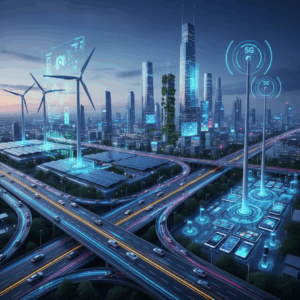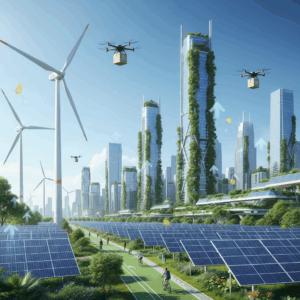Causes of economic inequality
Economic inequality arises from multiple factors that directly affect the distribution of income and opportunities in society. One of the key causes is unequal access to education, which limits social mobility from an early age.
Furthermore, the concentration of wealth in the hands of a minority widens social and economic gaps. This unequal distribution creates a cycle that is difficult to break, perpetuating inequality and affecting social cohesion and economic development.
Alongside these elements, there are structural and systemic challenges that keep this problem active, influencing the daily lives of large population sectors.
Unequal access to education and concentration of wealth
Limited and unequal access to quality education is a central factor perpetuating inequality. Those from disadvantaged socioeconomic backgrounds face greater barriers to accessing good schools and universities.
The lack of equitable education reduces the chances of improving personal economic conditions and limits job opportunities. This contributes to wealth becoming concentrated in privileged groups, while the majority is left behind.
This concentration of wealth favors the accumulation of power and resources in a few individuals, increasing social disparity and hindering the implementation of redistributive policies that can balance these differences.
Influence of policies, corruption, and globalization
Ineffective or poorly designed public policies can deepen economic inequality, especially when they fail to distribute resources equitably. Corruption and tax evasion exacerbate this situation by reducing the revenue the state could invest in education and social services.
Furthermore, globalization has widened the gap between those who have access to new technologies and markets and those who are excluded. This exacerbates economic disparities and limits opportunities for large segments of the population.
The combined impact of these forces creates an environment where inequality is reproduced, hindering sustainable development and equality of opportunity in the long term.
Social impacts of economic inequality
Economic inequality has profound consequences that affect various social aspects, from increased poverty to a loss of cohesion in communities. These consequences harm both individuals and society as a whole.
The greater the inequality, the more evident the gaps become in health, education, and security, contributing to the perpetuation of cycles of exclusion and marginalization that are difficult to break. These impacts require urgent attention to promote more just societies.
The social structure suffers when large sectors are excluded from development and opportunities, generating a complex social crisis that limits progress and political stability.
Increased poverty and deteriorating health
Inequality increases poverty by concentrating resources in the hands of a few, leaving large sectors of the population with insufficient income to cover basic needs. This results in a greater number of people living in precarious conditions.
Furthermore, poverty and inequality are closely linked to the deterioration of physical and mental health, as limited access to medical services and poor nutrition directly affect the well-being of the vulnerable population.
These health problems generate social and economic costs, hindering the integral development of people and affecting performance in education and work, thus perpetuating the cycle of poverty.
Social exclusion and increased crime
Those marginalized by inequality often face social exclusion, leading to feelings of hopelessness and a lack of belonging. This exclusion limits their active participation in social, political, and economic life.
This situation contributes to the increase in crime, since the lack of opportunities and desperation can drive criminal behavior as a survival mechanism or social protest.
The insecurity stemming from inequality affects not only the poorest, but all of society, generating a climate of violence and distrust that hinders community development.
Perpetuation of discrimination and loss of social cohesion
Economic inequality also perpetuates discrimination based on class, race, or gender, as structural inequalities limit equal access to opportunities, reinforcing historical stigmas and inequalities.
This discrimination contributes to the loss of social cohesion, as economic divisions translate into deep social fractures, hindering solidarity and working together for the common good.
Social fragmentation negatively impacts political stability and sustainable development, highlighting the need for policies that promote inclusion and real equality.
Strategies and policies to reduce inequality
Reducing economic inequality requires implementing strategies based on social and economic justice. Effective public policies must ensure equitable access to essential resources.
These actions seek to guarantee opportunities for all, improve the quality of life and foster inclusive development, promoting equity in the distribution of wealth and social well-being.
The design of these policies requires a comprehensive approach, addressing both the structural causes and the consequences of inequality, ensuring sustainability and effectiveness in their results.
Universal access to education and progressive tax systems
Universal access to quality education is fundamental to reducing inequality. Equitable education allows all individuals to develop the skills and potential to compete on a level playing field.
Furthermore, progressive tax systems redistribute income, taxing those with greater resources more heavily and allocating those funds to public services that benefit the majority, promoting social justice.
Implementing these measures strengthens social mobility and reduces economic gaps, breaking cycles of poverty and exclusion in the long term.
Social policies and regulation of labor markets
Accessible social policies, such as health and housing protections, are essential to guaranteeing dignified living conditions that reduce vulnerability. These protections strengthen inclusion and well-being.
Regulating labor markets through fair wages and equitable conditions prevents exploitation and promotes decent employment, fostering a fairer and more stable working environment for workers.
These measures help reduce wage disparities and improve the quality of life for large segments of the population, generating a positive impact on social cohesion.
Strengthening local employment and citizen participation
Strengthening local employment boosts inclusive economies, supporting small businesses and domestic markets that generate opportunities for vulnerable sectors, fostering sustainable development.
Likewise, citizen participation in the formulation of public policies ensures that decisions respond to the real needs of the population, promoting transparency and social commitment.
Promoting these aspects enhances collaboration between communities and governments, creating more equitable and democratic development models.
Challenges and perspectives in the fight against inequality
Overcoming economic inequality presents complex challenges that require profound structural changes in today's economies. It is not enough to alleviate symptoms; it is necessary to transform the root causes of the problem.
These challenges include modifying economic systems to promote equitable distribution, ensuring opportunities for all and reducing the excessive concentration of wealth that perpetuates inequalities.
To achieve this, cooperation between governments, businesses, and civil society is essential, promoting innovative and sustainable long-term strategies that leave behind exclusionary economic models.
Transformation of economic structures
It is vital to reconfigure traditional economic structures that favor the concentration of wealth in the hands of a few. This implies changing the way resources and opportunities are distributed.
Implementing inclusive models that integrate marginalized sectors and strengthen local economies contributes to a fairer distribution of wealth. Regulation and oversight must be reinforced to prevent practices that exacerbate inequalities.
Furthermore, encouraging public policies that promote social and economic innovation can generate new productive dynamics with benefits for all social sectors.
Necessary cultural and political changes
Addressing inequality is not only an economic issue, but also a cultural and political one. It is essential to transform social values and attitudes that tolerate or justify inequalities.
Promoting collective awareness of the importance of equity and social rights generates support for inclusive and redistributive policies. Active citizen participation is key to democratizing decision-making.
Likewise, a genuine and sustained political commitment that prioritizes social justice is necessary. Transparency, the fight against corruption, and institutional strengthening are essential for achieving this change.






